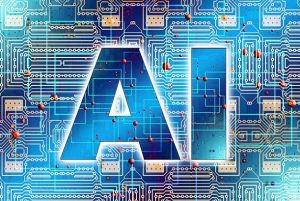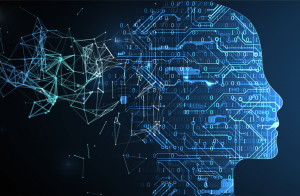People trained AI…now AI trains people
5 min readTable of Contents
In the rapidly evolving technology environment, the relationship between humans and artificial intelligence (AI) has entered a new phase. While there has been a lot of discussion about the training of AI by people, a further perspective is now emerging – the mutual process in which AI trains people.
This partnership impacts the way we learn, innovate and prepare for the future. Let’s take a look at how AI has become an important companion in preparing individuals for the challenges of the future.
People train AI
Traditionally, humans play a central role in training AI. We use various methods to teach AI to perform tasks such as recognizing images and understanding language. Think of these methods as tools in a toolbox, each designed for a specific purpose.
In “supervised learning“ AI is based on marked examples, e.g. B. when distinguishing between cats and dogs in photos.
In “unsupervised learning“ patterns become apparent in data revealed without labeling, while the “reinforcement learning“ reflects how we learn to ride a bike through trial and error.
Human trainers continuously optimize AI and act as teachers, guiding the AI student to become smarter with each lesson. It is a constant journey of learning and improvement.
AI trains people
However, the paradigm is shifting. Instead of peopletraining AI, an exciting change is underway – AI is training people.
This new concept represents a remarkable development in the symbiotic relationship between people and AI.
Once AI is trained to perform specific tasks or solve complex problems, it can not only support people, but also train and empower them in unprecedented ways.
Some critical aspects of training humans through AI are as follows:
- AI as an educator
AI has evolved from a passive tool to a personalized teacher. It is changing the way we approach learning and future readiness.
This is how AI today helps us learn languages by providing personalized learning plans and suggestions on grammar, style and content.
These tools provide real-time feedback and help students master linguistic nuances and expand their writing skills.
- AI as a personal health coach
AI is becoming a personal health coach in healthcare, helping us adopt and maintain healthy lifestyle habits. Artifical intelligence analyzes our health data, including diet, exercise, sleep and stress levels, and offers tips for a better lifestyle.
AI apps and platforms help choose meals, monitor calorie intake, and provide personalized training plans that adapt to our progress.
In addition, AI-controlled chatbots and apps offer support for mental health and thus contribute to healthier behavior.
- AI as an art trainer
AI is transforming the art world by analyzing large amounts of art and literature and helping artists experiment with new styles and media.
It can even generate art in the style of famous painters, allowing contemporary artists to explore different techniques.
AI also acts as an art teacher, providing real-time feedback on brushwork and color choice, helping artists improve their skills and precision.
- AI as a career trainer
AI is making remarkable progress in vocational training and influencing the acquisition of practical skills.
Through the use of AI, vocational training has become more accessible and efficient. AI-driven simulations provide realistic training scenarios and allow learners to practice without physical resources.
For example, medical professionals can hone their surgical skills using risk-free AI-driven simulators that adapt to individual needs and promote personalized learning.
- AI as a sports trainer
In sports, AI is a personal trainer that adjusts training plans and tracks performance in real time. In golf, for example, AI analyzes a golfer’s swing and gives him individual feedback.
It goes beyond physical training and helps with game strategies and mental well-being. This change in sport is allowing athletes to reach their full potential and achieve greater success.
- AI is redefining programming skills
AI improves the skills of programmers and software developers. AI-supported tools like Copilot offer numerous advantages, e.g. Such as creating real-time coding suggestions, predicting code requirements, and analyzing code for errors.
These tools give developers instant feedback, improving their coding work and efficiency.
Additionally, AI tools provide guidance on coding patterns and best practices, helping programmers adopt better coding habits.
Ethical considerations and challenges
When AI takes on the role of a trainer, ethical considerations and challenges arise. Protecting personal data and privacy must be a priority when adapting learning experiences through AI. Finding the right balance between tailored training and privacy protection is a complex task that requires our attention.
Removing biases in AI algorithms is crucial to ensuring fairness and equity in training. Transparency in AI systems is also important, as users should be able to understand how AI controls their training to promote trust and effectiveness.
Establishing clear areas of responsibility is essential. In the event that AI provides incorrect or harmful guidance, mechanisms to address errors or damage must be put in place to maintain trust. While AI is a valuable support, it should never replace essential human qualities such as creativity, critical thinking and ethical decision-making.
Finding the balance between technological advancement and ethical responsibility is a collective challenge if we are to master the future of AI as human educators.
By analyzing these developments, we can foresee a future where AI and people work seamlessly together in education and training.
Together they create collaborative learning ecosystems that overcome traditional learning barriers and accompany people individually throughout their lives.
AI acts as a trusted partner, personal teacher and mentor, enabling individuals to learn skills and discover new areas.
Conclusion…now AI trains people
AI is developing into a personalized trainer and collaborator for people in a wide variety of areas. While it offers transformative potential, it is important to consider ethical concerns and ensure transparency.
These ecosystems are constantly changing to meet the needs of society. AI adapts to new trends, promotes interdisciplinary learning and inspires creativity. Together we focus on gaining wisdom. AI challenges us with ethical dilemmas and promotes critical thinking and responsible decisions.
We embark on a deep search for knowledge, understanding and ethical responsibility, shaping a better future full of endless opportunities for growth and learning.






![Top 10 Leading Countries in AI Research and Technology [current_date format=Y] 28 Top 10 Leading Countries in AI Research and Technology [current_date format=Y]](https://cryptheory.org/wp-content/uploads/2023/08/ai-strategie-300x193.jpg)